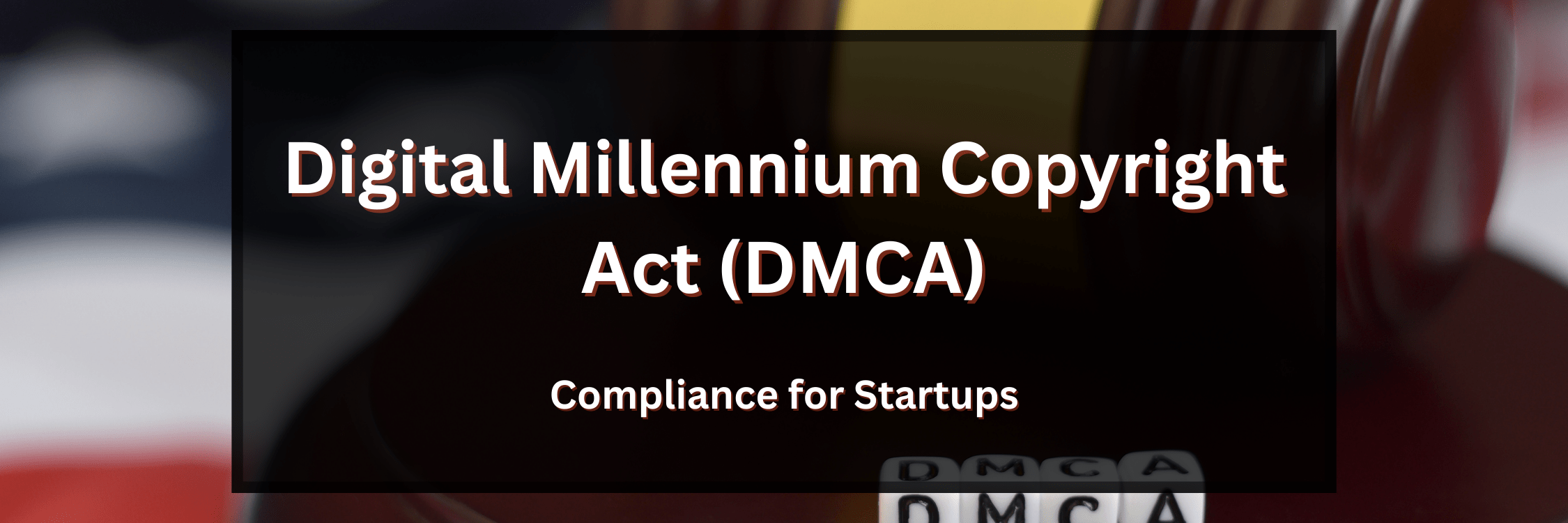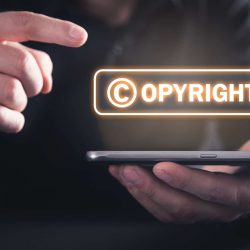In the dynamic realm of startups operating in the digital space, the legal landscape can be as complicated as the technology they employ. One critical regulation that demands the attention of such ventures is the Digital Millennium Copyright Act (DMCA). This guide aims to unravel the complexities of DMCA compliance, elucidating key aspects such as safe harbor provisions, adept management of copyright infringement claims, and the advantages for startups keen on navigating the digital landscape responsibly.
Understanding the Digital Millennium Copyright Act (DMCA)
Enacted in 1998, the DMCA is a comprehensive piece of legislation that addresses various facets of copyright law in the digital age. One of its pivotal aspects for startups is the safe harbor provision. It shields online service providers from certain copyright infringement liabilities arising from user-generated content. To leverage this protection, startups must comply with specific requirements outlined in the DMCA.
Safe Harbor Provisions: A Shield for Startups
One of the cornerstones of DMCA compliance is the safe harbor provision, offering startups a legal shield against copyright infringement claims related to user-generated content on their platforms. To qualify for this protection, startups must fulfill certain conditions, including adopting and implementing a policy to address and terminate the accounts of repeat infringers, as well as quickly removing infringing content upon notice.
Establishing and Implementing a DMCA Policy
Having a robust DMCA policy is not just a legal requirement but a measure to create a secure digital environment. This policy should outline the startup’s commitment to respecting intellectual property rights, provide a clear mechanism for submitting DMCA notices, and detail the procedures for handling and responding to such notices. An effectively communicated and implemented DMCA policy is important to showing a startup’s commitment to compliance.
Navigating Copyright Infringement Claims
Even with a diligent DMCA policy in place, startups may encounter copyright infringement claims. Swift and adept handling of these claims is crucial. Upon getting a DMCA notice, startups should investigate the claim, take down the infringing content, and notify the user responsible. A transparent and efficient process not only satisfies legal requirements but also contributes to keeping a positive relationship with users and copyright holders.
User Education: A Proactive Approach
While a DMCA policy serves as a reactive measure, educating users about copyright and intellectual property rights is a proactive approach. Startups can incorporate user education initiatives within their platforms, providing clear guidelines on acceptable content creation and usage. This not only fosters a culture of compliance but also reduces the likelihood of unintentional copyright infringements by users.
Benefits of DMCA Compliance for Startups
Beyond legal requirements, DMCA compliance offers startups several tangible benefits. By embracing DMCA principles, startups can build trust with users, as they demonstrate a commitment to protecting intellectual property rights. This, in turn, can enhance the startup’s reputation and attract content creators who seek a secure platform for their work. Moreover, DMCA compliance positions startups as responsible digital citizens, encouraging positive relationships with both users and copyright holders.
Emerging Trends in DMCA Compliance
As technology evolves, so do the challenges and opportunities related to DMCA compliance. Startups should stay abreast of emerging trends in digital copyright, such as advancements in content identification technology and evolving legal interpretations of DMCA provisions. Being proactive in adapting to these changes ensures that startups remain at the forefront of compliance, providing a secure and innovative environment for their users.
Conclusion
In the rapidly changing digital landscape, startups must master a complex web of legal regulations to thrive. The DMCA stands as a crucial guide for startups, offering a roadmap to compliance and legal protection. By understanding and sticking to DMCA provisions, startups can enjoy the benefits of safe harbor protection. They can also mitigate legal risks and cultivate a secure environment for user-generated content. As startups continue to shape the digital frontier, embracing DMCA compliance becomes not just a legal obligation but a strategic imperative for sustained success and positive relationships in the digital realm.





